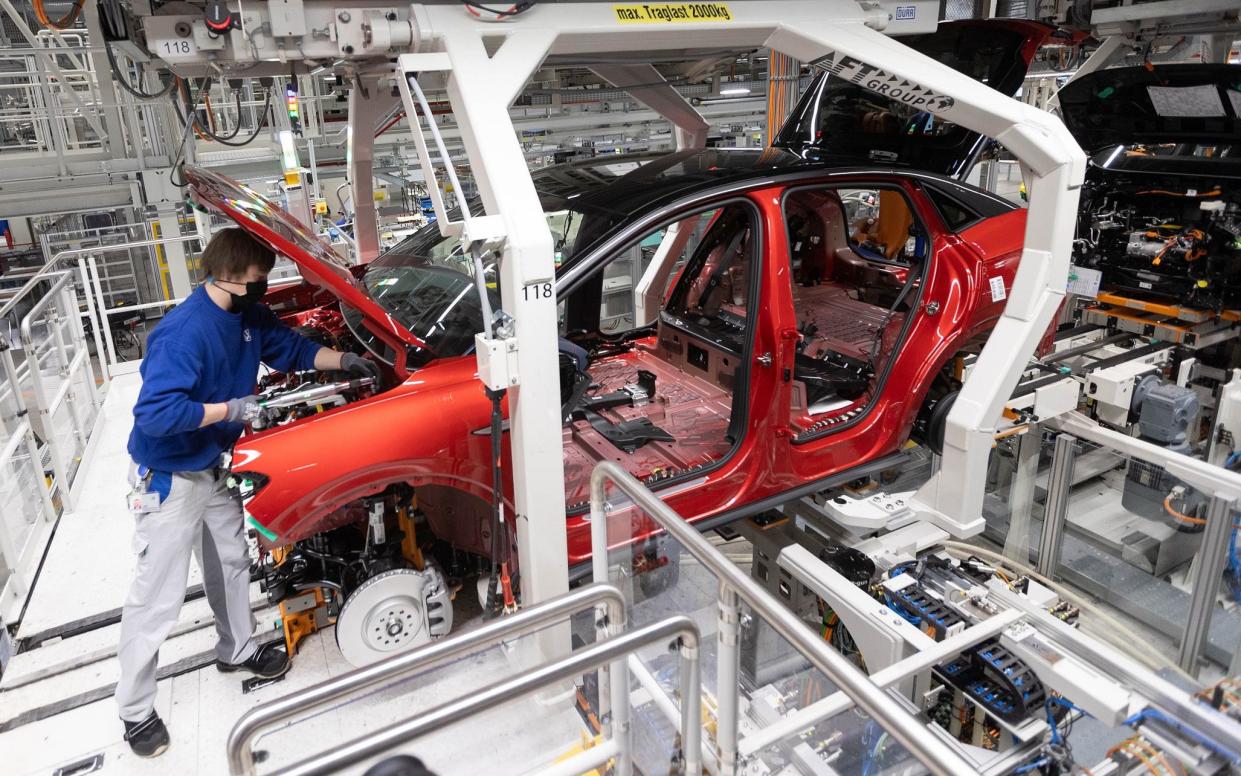Rising energy costs risk ruining Europe’s electric car ambitions, VW warns

Surging energy costs will leave the European Union unable to attract battery plants in a blow to its electric car ambitions, a top Volkswagen executive has warned.
Thomas Schäfer, chief executive of Volkswagen Passenger Cars, said Germany and the EU were “rapidly losing their attractiveness and competitiveness” for so-called gigafactories as a result of sharp rises in the cost of power.
He added that EU bureaucracy and state aid rules risk hamstringing efforts to bring electricity and gas prices under control.
In a LinkedIn post, Mr Schäfer said: “Unless we manage to reduce energy prices in Germany and Europe quickly and reliably, investments in energy-intensive production or new battery cell factories in Germany and the EU will be practically unviable.”
Volkswagen is planning to build six gigafactories to supply millions of batteries for its electric vehicles, and has broken ground on the first factory, GigaSalz, near Salzgitter in Germany. It hopes to start operations by 2025.
The world’s biggest carmaker has committed to spend €20bn (£17bn) on battery plants that will employ 20,000 people across Europe.
However, Mr Schäfer criticised a recent deal between French and German economics ministers, Bruno Le Maire and Robert Habeck, warning it “falls short” on its priorities.
The financial chiefs of the EU’s leading economies last week agreed to push for greater subsidies in the bloc to tackle US President Joe Biden’s sweeping Inflation Reduction Act, which includes a $369bn package of tax breaks and incentives for green investment from US businesses.
European leaders fear the bill will suck investment from the continent and have attacked protectionist measures buried within it, such as incentives for buying American-made electric vehicles.
Brussels has argued the bill breaks global trade rules through its benefits for American companies.
Mr Schäfer said: “With the Inflation Reduction Act, the USA offers companies highly attractive incentives to invest in new plants and production.
“The EU, on the other hand, is sticking to outdated and bureaucratic state aid rules.
“The EU urgently needs new instruments to avert insidious de-industrialisation and to maintain Europe’s attractiveness as a location for future technologies and jobs.”
Britain is also struggling to create a battery infrastructure for the switch to electric cars.
A gigafactory is being built to supply the Nissan factory in Sunderland, but another would-be major player, Britishvolt, is struggling to secure funds after narrowly avoiding administration.

